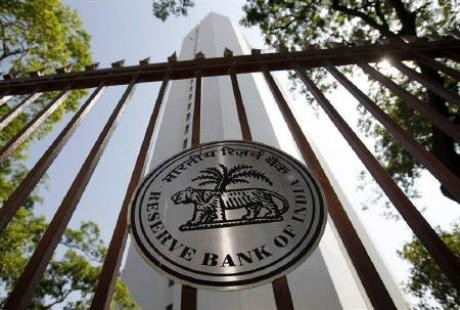India Cuts Key Interest Rate to 7.5%, Second Time in 2013 to Revive Growth
Reserve Bank of India says "further monetary easing remains quite limited"

India's central bank has cut its benchmark policy rate for the second time in 2013, as it looks to help boost the country's economic growth amid moderating core price pressures and government's vow to reduce fiscal deficit.
The Reserve Bank of India (RBI) has lowered the policy rate or repo rate by 25 basis points to 7.5 percent in its mid-quarter meeting, as widely expected by economists and the finance ministry. Repo rate is the rate at which the RBI lends money to commercial banks.
Further, reverse repo rate which is the rate at which RBI takes deposits from commercial banks was lowered to 6.5 percent.
However, the cash reserve ratio was left unchanged at 4 percent, following a 25bp cut at the central bank's last meeting.
In its policy statement, the RBI noted that "global financial market conditions have improved, but global economic activity has weakened."
"On the domestic front too, growth has decelerated significantly, even as inflation remains at a level which is not conducive for sustained economic growth."
India's gross domestic product growth in the third quarter of fiscal year 2012-13, was 4.5 percent, the weakest in the past 15 quarters. Asia's third-largest economy is expected to grow at its slowest in a decade at around 5 percent in the fiscal year ending in March.
The wholesale price index (WPI) inflation edged up to 6.8 percent in February from 6.6 percent in January, while the current account deficit remains at a record-high level, limiting the bank's space for further monetary easing. The central bank expects the headline WPI inflation to remain around its existing level through the coming fiscal year, with food price increases remaining problematic.
"Even as the policy stance emphasis addressing the growth risks, the headline for further monetary easing remains quite limited," the RBI said.
High inflation means that India's bank deposit rates remain negative in real terms relative to consumer price index.
"Economic growth is likely to remain weak, particularly given ongoing efforts at fiscal consolidation But the RBI can ill-afford to ignore the problems that negative real interest rates are creating," said Aninda Mitra, an economist at Capital Economics.
"Hence, it makes sense for the central bank to maintain a prolonged hold on policy until either inflation pressures are better contained, or the balance of payments position improves."
"Moving forward, a sustainable economic recovery will hinge on renewed traction in policy reforms. At a minimum, further expansion of India's FDI and GST [Goods and Services Tax] reforms coupled with a more complete rationalisation of subsidies are necessary to underpin growth," said Aparna Dubey at ANZ Research.
© Copyright IBTimes 2025. All rights reserved.






















